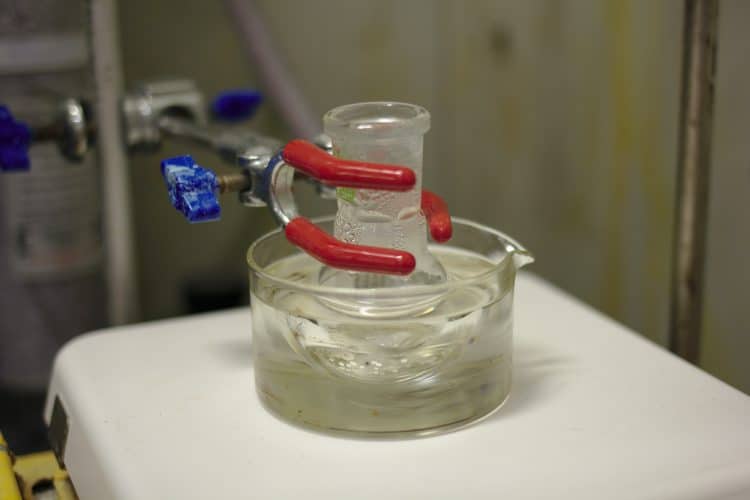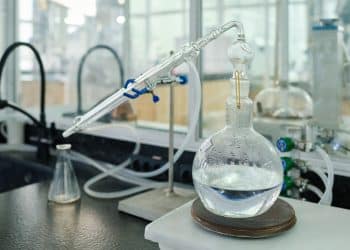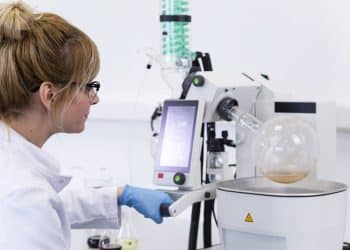THC remediation refers to the separation and removal of THC from hemp oil in order to leave behind pure forms of CBD. THC remediation is necessary for compliance since legal hemp products must not contain over 0.3% THC. [1]
The removal of THC from extracts is useful in creating pure CBD isolates too. The most basic form of THC remediation involves dilution of the hemp extract with medium-chain triglycerides (MCTs) oil to reduce THC levels to an acceptable range. As the demand for purer forms of CBD has increased, producers have turned to various remediation techniques such as crystallization or chromatographic-based methods among others.
Crystallization as a THC Remediation Method
CBD molecules crystallize easily. This makes crystallization a preferred method for remediating THC. The hemp extract or CBD oil is dissolved in solvent: the best is to use one easy to get evaporated such as pentane. The mixture is gently heated while stirred and then it is allowed to cool down gradually in a cooling bath. The slower the crystals form the higher is their purity: if the crystallization is too fast, during the nucleation process impurities will be included in the forming crystals. Once the crystallization process starts, the mixture can be stirred in order to break the thermodynamic balance and separate the CBD crystals from the solution. [2] Commercial CBD isolates generally have around 99.5% of purity. Cfter CBD crystallization, what is left behind in the mother liquor are THC, other plant components and impurities. This process can be repeated to create a purer CBD isolate. Remediating THC from the mother liquor in the process of crystallization helps to create a pure extract with little to no impurities. Since the method only requires basic materials, it is cost-effective.
Less costs, less waste, less time
Remediating THC in your mother liquor provides several benefits. This allows you to extract pure forms of CBD isolates with purity exceeding 99%. It is also possible to isolate other cannabinoids with a high level of purity. Most of the solvent can be recycled and reused, reducing wastes and byproducts formation. No fancy equipment is required and the run times are relatively short. By choosing to remediate cannabinoids from your mother liquor will enable your business to save on costs, to diversify your portfolio and to achieve long-term sustainability.
References:
[1] https://www.fda.gov/news-events/press-announcements/statement-fda-commissioner-scott-gottlieb-md-signing-agriculture-improvement-act-and-agencys
[2] Chang C. et al. Cannabidiol and terpenes from hemp – ingredients for future foods and processing technologies, Journal of Future Foods,(2021) Vol 1, Issue 2, 113-127, https://doi.org/10.1016/j.jfutfo.2022.01.001 [Journal impact factor = 0.14] [Times cited =1]
Image: crystallization_https://unsplash.com/photos/lam8dktJKuk












